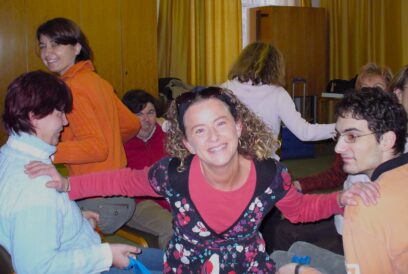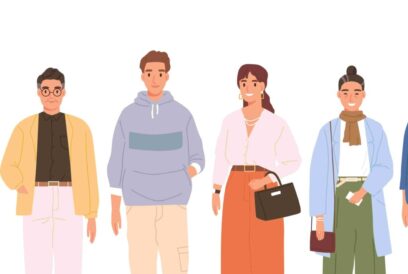

The pace of change in the world is already so fast that nobody can avoid lifelong learning. The text is an editorial written for issue 3/2019 on Adult Education and Megatrends.
In recent years, I have often semi-seriously wished that I had studied coding instead of journalism.
While my profession lurches from one redundancy negotiation to the next, the lucky ones who once studied the very untrendy subject of IT are now doing grandly. While my journalist colleagues compete for poorly paid bits and pieces of work, coders are currently choosing their jobs and naming their price.
In actual fact, the labour shortage in the IT sector has already become so great that university degree programmes do not have enough time to react to the wishes of companies living by the quarterly economy. They need experts immediately.
The nimbler players in the teaching sector have woken up and smelled the cash. New training programmes have been established for coding studies, some of which are courses just a few weeks or months long.
One of the programmes was started in 2018 in a spectacular manner by Finnish gaming company Supercell, which is globally renowned for its game Clash of Clans, among others. Those selected for the programme were promised a sure-fire job. It was particularly emphasised that women were welcome, since the IT sector is still conspicuously male.
In the buzz of the start-up, however, one small problem stuck out: in the initial phase, the company was seeking for the programme only people aged 18 to 30.
THE WORLD IS CHANGING MORE QUICKLY than ever before from the effect of many simultaneous megatrends, and these changes are influencing almost every aspect of our lives.
In this themed issue too, we talk about, for example, the ageing of the population, population growth, the environmental sustainability crises caused by climate change, the accelerating development of technology, and the impact of the Internet age on available knowledge and thereby also on the polarisation of debate.
The megatrends also include the revolution in work, meaning in particular changes caused by digitalisation and automation. The conversation then easily turns, as in this article, for example to the IT sector exploiting the digital boom, or to the media sector, which has suffered from the turmoil most visibly, or at least most publicly. Alternatively, people begin to talk of remote work or digital skills that must be learned by the middle-aged.
For sure, these are important subjects.
Robotization is putting before us issues of quite another scale than the question of whether middle-aged workers learn the latest office software.
Nevertheless, according to forecasts the coming changes will be so comprehensive and the speed of change so rapid that our world will become incredibly different, even over the next 10 years, and no one can properly forecast how it will look in 2050.
The greatest reason for this is the climate crisis, whose fateful issues must largely be resolved within the next 10 years, according to the latest climate report by the IPCC (Intergovernmental Panel on Climate Change).
Furthermore, rapidly progressing robotization, for example, is putting before us issues of quite another scale, rather than the question of whether employers should organise for their middle-aged workers continuing education on the latest office software.
This is what Israeli historian Yuval Noah Harari points out in his works Sapiens: A Brief History of Human Kind (2011) and Homo Deus: A Brief History of Tomorrow (2015).
Will there still be any paid work in 50 years’ time and, if so, what sort of work will it be?
Will there still be any paid work in 50 years’ time and, if so, what sort of work will it be? How should wealth be divided between social classes, when technology that has been mastered by only a few can handle an increasingly large proportion of work currently done by people?
How will the relative strengths and political systems of the world’s countries develop as climate change progresses and competition for resources intensifies? What will happen to economic growth without material growth? When computers become smarter than us, how will they treat us?
THESE QUESTIONS ARE ENORMOUS, BUT ONE THING IS CERTAIN. Megatrends are above all a question of learning.
It is not, however, a question of training 18-30-year-olds for a suitable “future industry”, but of lifelong learning for all age groups.
According to forecasts, the population continues to live longer and longer and at the same time the birth rate continues to fall. This means that there will simply not be enough young people to occupy all forms of new jobs and livelihoods. That is, at least if the older age groups wish to retire.
Instead people of all ages need to keep on learning.
What’s more, as the pace of global change accelerates, during their working years an increasing number of people will have to study not only software and technology but also a completely new industry. Today coding is all the rage, but in 2030 we might be getting excited about something completely different.
For those who are unable to keep up with the pace of change, things might go pretty badly.
As the climate crisis progresses, those of us whose sector does not become obsolete will at least have to get used to a more climate-sustainable diet, living conditions, and means of transport and consumption.
For those who are unable to keep up with the pace of change, things might go pretty badly. The Finnish Innovation Fund Sitra sums up the risks of such thinking in an article about the revolution of work with the headline “In the history of the world, 50 years may be a short time, but in the life of one person a tragedy spanning a whole career and lifetime.”
It is therefore important that no unnecessary barriers like age limits are set for lifelong learning.
Fortunately, Supercell listened to the vast amounts of customer feedback and removed the upper age limit from its training programme. Now the company’s website talks about, for example, taking into account the needs of people changing jobs from one industry to another.
Author






